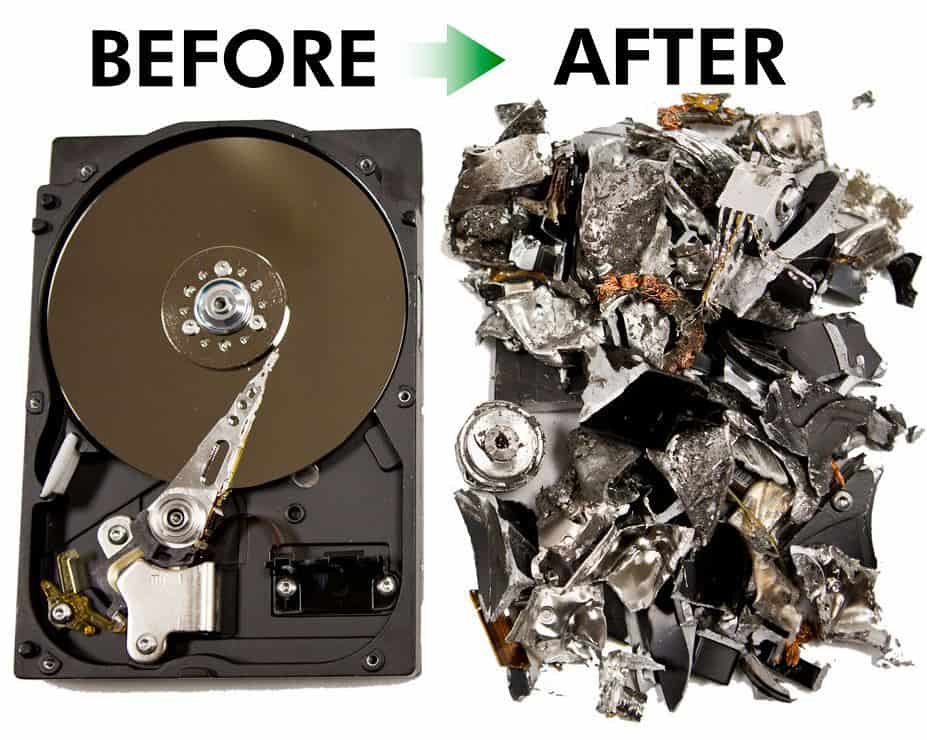The Important Nature of Information Damage in Upholding Computer Safety Solutions and Protecting Against Unauthorized Gain Access To
In a period where information violations and identification theft are progressively prevalent, the relevance of efficient data destruction can not be overemphasized. Various techniques, from information wiping to physical damage, offer as vital safeguards against unauthorized accessibility.
Significance of Data Damage
In an increasingly digital globe, the significance of data devastation can not be overstated. As companies collect huge amounts of sensitive details, the potential consequences of stopping working to effectively manage and get rid of of that data end up being significantly serious. Information breaches, identity theft, and company espionage position considerable risks, underscoring the need of reliable information devastation methods.

In addition, as technology develops, so as well do the methods whereby harmful actors seek to exploit delicate details. Organizations must remain positive and cautious in their information devastation approaches to guard versus these progressing hazards. By prioritizing data damage, firms not only safeguard their possessions however additionally foster trust amongst customers and stakeholders, demonstrating a dedication to accountable data administration and safety methods.
Techniques of Effective Data Destruction
To make sure the complete and irreversible devastation of delicate data, companies can employ a variety of efficient techniques customized to their certain needs. Among one of the most typical approaches is data wiping, which entails making use of specialized software application to overwrite existing data several times, making recuperation practically difficult. This is especially beneficial for hard disk drives and solid-state drives, where conventional deletion approaches are inadequate.
An additional efficient approach is degaussing, which makes use of solid electromagnetic fields to interrupt the magnetic domain names on storage space media, rendering the information irretrievable. This technique is especially suited for magnetic storage gadgets, such as tape drives and hard drives.
Physical damage is also a feasible option, involving the shredding, squashing, or incineration of storage devices. This technique assurances that information can not be recovered, making it perfect for organizations managing highly sensitive info.

Conformity With Data Defense Rules
Organizations have to not just concentrate on efficient information destruction methods however additionally guarantee compliance with data protection policies that control just how delicate info is taken care of and thrown away. Complying with these policies is essential for safeguarding individual data and preserving client trust. Regulations such as the General Information Security Law (GDPR) in the European Union and the Health And Wellness Insurance Policy Mobility and Responsibility Act (HIPAA) in the United States impose stringent standards on data administration, which include requirements for the secure disposal of delicate information.
To accomplish conformity, companies read here must execute detailed information devastation plans that line up with these legal frameworks. This consists of recognizing information that needs damage, developing methods for safe methodsâEUR" such as shredding physical media or using software program that satisfies sector requirements for data wipingâEUR" and maintaining thorough documents of devastation activities. Regular audits ought to be performed to guarantee adherence to these policies and to recognize any type of potential areas for renovation.
Failing to follow data defense laws can lead to significant lawful ramifications, consisting of large fines and damage to a company's track record. As a result, incorporating compliance into data damage practices is not just a lawful responsibility but additionally a crucial part of a robust details security approach.
Effects of Poor Information Handling
Poor information handling can lead to severe effects that extend past prompt functional troubles. Organizations might deal with considerable economic losses because of information violations, which frequently result in expensive removal efforts, legal costs, and regulatory fines. These monetary ramifications can strain sources and prevent development, ultimately affecting a company's lower line.
Additionally, bad data handling can severely harm a company's reputation. Stakeholders, clients, and companions might shed trust fund in an entity that falls short to shield sensitive details, bring about lowered client loyalty and potential loss of business opportunities. This disintegration of trust fund can take years to restore, if it can be brought back in any way.
In addition, companies can encounter lawful ramifications arising from non-compliance with information security laws. Such offenses may lead to examinations and charges, worsening the monetary concern and further tainting the organization's photo.
In the realm of cybersecurity, insufficient data management practices can develop vulnerabilities that make systems much more vulnerable to unauthorized accessibility and cyberattacks. Ultimately, these repercussions emphasize the crucial relevance of applying robust information managing treatments to secure sensitive info and preserve business honesty.
Ideal Practices for Secure Information Disposal


First of all, data ought to be categorized according to its level of sensitivity. Sensitive details calls for extra rigorous disposal methods, such as shredding physical papers and using innovative software program for digital information wiping. Utilizing licensed information devastation services ensures compliance with sector laws and requirements.
Secondly, companies need to apply a data disposal plan that mandates normal audits. This policy must lay out the treatments for information retention and damage, guaranteeing that outdated information is dealt with quickly and securely. Training workers on these methods is vital to promoting a society of safety and security understanding.
Finally, preserving thorough records of disposed information improves accountability and gives a clear audit route. This paperwork must consist of the kind of information destroyed, the technique utilized, and the date of disposal.
Verdict
Taking on robust approaches such as data cleaning, degaussing, and physical destruction, alongside compliance with policies like GDPR and HIPAA, is necessary for protecting delicate information. Ignoring correct information disposal practices can lead to severe repercussions, consisting of data violations and legal repercussions.
In an era where data anchor violations and identity burglary are significantly common, the importance of efficient information damage can not be overstated. data destruction. Data violations, identification burglary, and corporate espionage posture considerable hazards, emphasizing the need of effective data devastation techniques
Compliance with laws such as GDPR and HIPAA mandates that companies implement stringent data protection actions, including the safe and secure destruction of information at the Full Article end of its lifecycle.
By prioritizing data devastation, firms not only safeguard their assets however likewise foster trust among clients and stakeholders, showing a commitment to responsible information administration and security techniques.
Organizations should not just focus on efficient information destruction techniques yet also ensure conformity with data security laws that control how sensitive info is dealt with and disposed of.
Comments on “Top Tips for Ensuring Secure Data Destruction in Your Cyber Security Strategy”